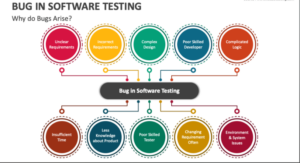Software quality assurance (QA) plays a pivotal role in the development and maintenance of any software system. Ensuring that a software product functions as expected and is free from defects is essential not only for user satisfaction but also for the success of businesses relying on these technologies. With the increasing demand for robust, reliable software in various industries, the role of QA testers has become more critical than ever.
In this comprehensive guide, we’ll delve into what software QA entails, why it is essential, and how Software qa training Courses such as the one offered by H2K Infosys can equip you with the skills to thrive in this booming field. Whether you’re just beginning your journey or looking to upgrade your skills, this article will offer insights into the field of software QA and its importance.
Introduction to Software QA
Software QA, short for Software Quality Assurance, is the process of systematically ensuring that a software product meets the required standards and functions as intended. QA focuses not only on detecting and fixing bugs but also on preventing defects by improving the development process itself.
In a competitive market, where customer satisfaction and user experience are paramount, businesses cannot afford to release software filled with errors. This is where Software QA comes in, ensuring that software products are efficient, reliable, and user-friendly.
Through QA testing, companies can maintain product integrity, reduce development costs, and ensure compliance with industry standards. Whether it’s a simple mobile app or a complex enterprise system, QA plays a crucial role in maintaining high-quality standards.
Why Software QA Matters: The Importance of Testing
Software defects can result in operational failures, financial loss, and reputational damage. Consider high-profile software failures like the 2010 Toyota recall due to software issues that caused unintended acceleration. The cost of fixing errors after deployment can be astronomical compared to catching them early in the development process.
Here are a few reasons why software QA is indispensable:
- Cost-Efficiency: Detecting bugs early in the development phase saves money, as the cost of fixing defects increases significantly after the product has been released.
- User Experience: Ensuring that software is free from glitches enhances the user experience, driving user satisfaction and loyalty.
- Compliance and Security: Regulatory compliance and security issues are mitigated through thorough testing.
- Business Reputation: Delivering reliable, well-functioning software enhances a company’s reputation in the market.
Software QA certification ensures that you are adept at identifying problems before they become catastrophes. More importantly, it demonstrates your competency to potential employers.
What Does a Software QA Tester Do?
A Software QA tester‘s role is multi-faceted. Their primary task is to ensure that the software product meets all specified requirements and functions smoothly. However, there are various methods and types of testing that QA testers need to be familiar with:
- Functional Testing: Verifying that each function of the software application operates in conformance with the requirements.
- Performance Testing: Ensuring the software performs well under stress and various loads.
- Automation Testing: Using automated tools to execute tests, which helps in repetitive and complex testing tasks.
- Security Testing: Ensuring that the software product is secure against attacks and vulnerabilities.
Additionally, software QA testers often collaborate with developers, business analysts, and project managers to ensure the final product is both user-friendly and defect-free. Having QA training can provide a clear understanding of these diverse testing techniques, allowing you to choose the best approach for any project.
Key Skills Needed for a Successful QA Career
To succeed as a software QA tester, you’ll need a mix of technical and soft skills. Here are some critical areas to focus on:
- Analytical Thinking: QA testers must be able to break down complex systems into smaller components to identify issues.
- Attention to Detail: The ability to catch small but critical errors is vital.
- Programming Knowledge: Familiarity with programming languages (like Python, Java) is beneficial, particularly for automation testing.
- Understanding of Development Lifecycles: A solid understanding of software development lifecycles (SDLC) is essential for spotting where QA can be most effective.
- Communication Skills: Testers must communicate their findings effectively to developers and other stakeholders.
You can gain these skills through a software testing online course that not only covers theoretical concepts but also includes practical training in tools like Selenium, JIRA, and others.
Software QA Training and Certifications
In today’s competitive job market, certifications validate your expertise and commitment to quality assurance. Here are a few widely recognized software QA certifications:
- ISTQB (International Software Testing Qualifications Board): One of the most respected certifications in the QA world.
- Certified Software Quality Analyst (CSQA): This certification is great for those looking to specialize in quality management.
- Certified Software Tester (CSTE): Aimed at entry-level testers who wish to build foundational skills.
At H2K Infosys, we offer QA training and certification programs that cover everything from manual testing to advanced automation techniques. Our courses are designed to help you earn certifications that demonstrate your skills and enhance your career prospects.
Real-World Examples: The Impact of Software QA
Case studies highlight the value of QA in real-world settings. Consider the case of a major e-commerce platform that experienced multiple server crashes due to poor QA processes. The issue, which could have been caught during stress testing, cost the company millions in lost revenue. After revamping their QA strategy, they reduced incidents of downtime by 85%, improving both user satisfaction and revenue.
Industry statistics support the claim that investing in QA yields long-term benefits. According to a Capers Jones study, catching defects early in the development process can reduce project costs by up to 30%. Moreover, QA testers with certifications and specialized training have been shown to earn higher salaries and progress faster in their careers.
Benefits of Taking a QA Testing Online Course
With the surge in remote work and digital transformation, now is the perfect time to invest in a software testing online course. Here are some key benefits:
- Flexibility: Online courses offer the convenience of learning from anywhere at your own pace.
- Real-World Projects: Reputable courses, like those offered by H2K Infosys, provide hands-on projects that simulate real-world scenarios.
- Industry-Relevant Tools: Learn how to use the latest testing tools like Selenium, Appium, and JIRA, giving you a competitive edge.
- Mentorship and Support: Access to expert instructors who can guide you through complex concepts and provide personalized feedback.
Why Choose H2K Infosys for Your Software QA Training?
H2K Infosys is a leader in online IT training, offering a range of courses tailored for individuals who want to excel in QA testing. Here’s why you should consider enrolling in our Software QA training course:
- Comprehensive Curriculum: Our courses cover both manual and automated testing, ensuring you’re prepared for any role.
- Practical Approach: You’ll work on real-life projects and case studies to apply the concepts you learn.
- Expert Instructors: Our instructors are seasoned professionals with years of industry experience.
- Job Placement Assistance: We provide guidance on resume building, interview preparation, and job placement to help you land your dream role.
Conclusion
As technology continues to evolve, the demand for high-quality software will only grow. This makes Software QA a critical field that ensures the delivery of reliable, secure, and user-friendly applications. Investing in a software QA certification through a reputable training provider like H2K Infosys can be a game-changer for your career. By equipping yourself with the skills and certifications needed in this industry, you’ll not only enhance your employability but also contribute to the success of software projects across industries.
Key Takeaways
- Software QA ensures that software is of the highest quality, preventing costly errors and improving user experience.
- Becoming a QA tester requires both technical and soft skills, many of which can be gained through a QA Testing Online Course.
- Software QA training and certifications are critical for validating your skills and making you a more competitive candidate in the job market.
- Taking a software testing online course with H2K Infosys offers flexibility, practical experience, and expert mentorship.
Call to Action
Ready to take the next step in your career? Enroll in H2K Infosys’ QA Testing Online Training Course today and gain the skills and certifications needed to excel in the field of software quality assurance. With hands-on training, expert guidance, and job placement assistance, we’re here to help you succeed. Start your journey to becoming a certified software QA tester now!































One Response